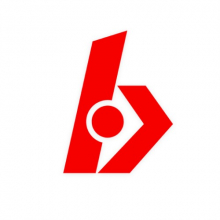
There are 22 Companies in Nepal
that provide Go development Services!
The IT sector in Nepal is an emerging area of the country. It is one of the priorities for the Nepalese government. This country specializes in web and mobile apps development, they have a lot of new startups, but also big companies like Verisk, Leapfrog, or Brain Digit IT Solutions, and of course, many of the companies in Nepal are providing services for other companies in Europe, America, and other countries in Asia.
Discover Top IT Companies in Nepal specialized in Go and other related services. Find the best IT service providers for your projects.
Go, also known as Golang, is an open-source programming language created by Google. It is designed for simplicity, efficiency, and concurrency, making it a versatile choice for building a wide range of applications, from web services to system software.
Handpicked companies • No obligation to hire • 100% risk-free
Featured Companies in Nepal
This month, the following Go development companies managed to provide an outstanding service and support. It's worth taking a look.
Griffity Studios builds powerful web & app experiences, blending 3D, branding, motion, and storytelling to elevate your brand across all platforms.
Explore Top Go development Companies in Nepal
Startups Realm is the Nepal leading #1 startup-focused IT company, founded with the intention of supporting and connecting great startup ideas.
Services:
ReadyToWork Inc. powers DX Promotion and Business Acceleration, delivering exceptional business solutions through Hybrid Agile Development Approach
Nexalaris Tech: AI-first software company in Nepal delivering cloud, web, mobile & cybersecurity solutions with modern tech and measurable impact.
Pagoda Labs is a digital-first agency blending creativity and technology to deliver flexible solutions for today’s evolving digital landscape.
Services:
Plex Bit Infosystems is a LEADING PROVIDER of Custom Software Development in Web, Mobile, Cloud, Blockchain, BI, AI & IoT for SMBs and Enterprises
Shaping a Brighter, More Convenient World with Technology, People and Our Commitment to Quality.
Software Company providing IT related services to small, mid and corporate businesses. Located in heart of Pokhara City, Nepal.
IT company for web development, mobile applications, UI/UX, and more.
Services:
Ewan Byte is a Nepal-based digital agency building custom web and mobile solutions with clean UI/UX and scalable technology.
Yuwasoft: Crafting innovative solutions, driving progress, transforming industries with cutting-edge software, AI, and digital transformation.
Asterdio is a technology & design partner for the most demanding companies with over 5 years of experience. We work with people, not documents.
The #1 IT Companythat provide various services like app development , website development , custom softaware development at a very affordable price.
Services:
Transforming Your Vision Into Reality
Services:
Building future of connected devices.
Services:
Software Development Company & IT Services.
Welcome to Digitalin Pvt. Ltd – Nepal's top digital marketing agency, your key to unlocking unparalleled online success.
Services:
The best place to get affordable premium website templates, scripts, graphical materials, plugins, addons, and other items.
Bitsbeat is a Nepal-based software development company offering customized IT solutions from industry experts to businesses all over the world.
Filter Go development Companies in Nepal by Cities
Find the right tech company near you or from a specific city. Some of the best companies might be located in smaller cities.
Find more Go development companies around the world
TechBehemoths is the world's most advanced and user-friendly platform to match IT Companies with real clients without hustle.
The IT Industry in Nepal: Companies, Data & Insights
The IT sector in Nepal is an emerging area of the country. It is one of the priorities for the Nepalese government. This country specializes in web and mobile apps development, they have a lot of new startups, but also big companies like Verisk, Leapfrog, or Brain Digit IT Solutions, and of course, many of the companies in Nepal are providing services for other companies in Europe, America, and other countries in Asia. Also, the government of this country identified the high demand for IT students and professionals from other developed countries, and they started offering different opportunities for being able to become an IT professional. In order to achieve these requirements, many institutions, universities, and colleges are providing various courses and degrees, for example, BCA, CSIT, or BSc.
Right now, a big challenge for the industry is the high competition that is going on in the sector, which is growing very fast, especially because right now, a company can hire employees from every part of the world, and that makes the level required to keep growing.
The IT industry in Nepal has more potential, but due to the lack of laws in relation to IT topics, it’s a bit stalled in some sectors like e-commerce, online transactions, and cyber law.
Why Should Somebody Work With Nepalese Companies?
Some of the best advantages that this country has are the following, low cost, affordable workers, and high profitability, and this is because, there’s a minimum wage of NPR 19,550 a month, and that’s $138.81, which stands out when looking for outsourcing services or products to another country for being a really strong point when choosing which country you should work with.
Another strong point of Nepal is the accessible bureaucracy and its higher education in IT topics such as mobile app development, data science, or web development, as the most important ones. The number of people interested in IT in this country is growing year after year because of the popularity and the job opportunities that can be found in this sector, in Nepal, and outside of Nepal. Some of the best universities and institutions to learn this discipline are Nepal Engineering College, Kathmandu University, and Himalaya Engineering College. Each year, approximately 5000 students graduate from Nepalese universities in the IT sector.
Business Process Outsourcing (BPO) in Nepal is very popular, and they are providing these services all over the world, but especially in European countries like Germany, the Netherlands, and France. And of course, the ICT Policy from 2015 has a special and separate section focused on the delivery and good use of ICT. Some of the political sectors that are involved in the law creation in relation to the ICT BPO are the Ministry of Information and Communication, the Ministry of Science, Technology, and Environment, the Nepal Telecommunication Authority, and the Department of Information Technology of the government.
What Should Somebody Be Aware of When Working With IT Companies From Nepal?
Nepal is well-known for being a low-cost destination for Outsourcing projects, and this country has some interesting data about professionals graduating each year in IT topics in the universities of Nepal, but there’s not a majority of professionals that went through this educational background and that can also lead to finding a lot of non-professional workers in Nepal, due to the difficulties to be able to study properly or the difficulties for almost the 25% of the population that are living with 50 cents of Euro a day. This can cause many people who are not well prepared to try to find their career in this sector, which looks highly successful and profitable, but without the basics that support the knowledge required to develop and outsource software, services, or apps.
Also, it is important to say that Nepal, being outside of the European Union, doesn’t have to comply with the laws and agreements that are currently being used in the countries that are part of the EU. This is important because the quality standards may not always be similar between the country of origin and destination during the Outsourcing process. Also, there are cultural aspects such as the possibility of finding companies and workers with a low level of English, which can be dangerous for the relationship between the two parties in terms of the goals and the way to achieve them.
There are also some aspects in relation to the laws and agreements that are currently being used in Nepal that can be dangerous, and this is the lack of laws in some aspects, such as e-commerce, e-transactions, or cybercrime laws.
The poverty levels in this country are an important factor to take into account, and this can lead to companies trying to sell the BPO services but not being able to achieve the expected standards of quality required by some countries in the most developed countries. This doesn’t mean that Nepal is a country of low-quality BPO companies, but it’s more possible to find them than in other places due to some of its socio-economic problems.
The last thing that is important to talk about is the stability of the country. Nepal is a country that is affected by some natural disasters more often than is desirable. In fact, it is a very vulnerable country when talking about natural disasters such as earthquakes, floods, landslides, and Avalanches due to its high mountains and altitude. This, in addition to the socio-economic situation, is two very important things to take into account when working with Nepalese companies, because the instability can be more frequent than it is desirable.
How Reliable Are IT Companies From Nepal?
Continuing with the previous point, there are Nepalese companies that are very reliable, but also others that cannot be so reliable due to some specific situations and characteristics of this country, such as poverty. Nepal is one of the poorest and least developed countries in some aspects, so you can find services offered that don’t correspond to the quality required due to the difficult situation of some people.
Also, there’s an important trend in the IT sector in Nepal, which is about cybercrimes and a lack of system security. It's popular to have one ethical hacker in a company because it’s popular to hack public and private websites, and companies need to avoid this, which is a problem for Nepal’s IT industry.
Also, the lack of awareness of cybercrimes in business firms and brands is a big concern nowadays. And this is related to the lack of cybercrime laws, which can also affect Nepalese companies’ reliability.
As in past articles about the IT industry reliability in other countries, you should always work with companies of proven quality and experience to avoid scams as much as possible. There’s always a risk when outsourcing services to another country, but with Nepal, this risk is more notorious than with other European countries due to the difficult situations that we talked about in this section.
How is the IT Industry in Nepal in Relation to the Neighboring Regions/Countries?
Nepal is over India and under China, which are two powerful countries in terms of the IT/ICT industry, especially China, which has a widely established ICT market in its country, as they are the home country of brands like Huawei, Xiaomi, or Honor. China, is the second-largest ICT market and in the year 2025 the sector’s production outperformed the country’s GDP with technologies like Big Data, IoT, or AI (Artificial Intelligence), their project is to reach 8.1$ trillion dollars representing 55% of China’s GDP, and this is also because in this country they have their own phone brands, social media apps and networks, and of course one of the biggest competition centers for making the best hardware and software for their products.
On the other hand, India is a well-known and number 1 BPO destination country, with a very strong industry, well-educated professionals, and low costs for companies. Also, living costs in India, rents, and profitability really stand out for their price-quality when compared to Nepal, and this is one reason why many Nepalese qualified workers choose to go and develop their career in this country. Both are very powerful competitors.
Conclusion
Nepal can be a good outsourcing destination for some companies that put the low prices first and the quality or the stability in second place, even when you can find very well-prepared professionals and companies. Some aspects of the law and agreements related to cybersecurity and cybercrimes are also a big weak point. The strong points are low costs, high profitability, and a good number of graduate students in IT-related fields every year. Taking these aspects into account, we can conclude that Nepal can be a good Outsourcing destination for its production prices, but it’s not very good in other aspects, such as law, protection for the company that wants to outsource its services. This can be beneficial for companies looking to reduce their costs to the maximum.
What is Go and what are its benefits for your projects?
Go, also known as Golang, is an open-source programming language created by Google. It is designed for simplicity, efficiency, and concurrency, making it a versatile choice for building a wide range of applications, from web services to system software.
More than 363 verified IT companies leverage Go in their development projects. These companies range from startups to tech giants like Google, Uber, and Dropbox. They appreciate Go's speed, reliability, and ease of use for building scalable and performant software.
Go service providers rely on various tools and technologies to enhance their development process. Some commonly used tools include the Go compiler, which transforms Go code into executable binaries, and the Go standard library, which offers essential packages for building applications. In terms of deployment, containerization technologies like Docker are frequently used to package Go applications for consistency and portability.
You may be wondering, how is Go Different from C, Rust, and Java. So, below we’ll try to show you more about the differences that exist between them:
-
Go vs. C: While both Go and C are low-level languages, Go offers modern features like garbage collection and memory safety, which simplify programming. Go is also more concise and expressive than C, making it easier to read and maintain. But if you think your business needs companies that also specialize in C, you can find them on this page
-
Go vs. Rust: Rust emphasizes memory safety and control without sacrificing performance. While Go offers simplicity and readability, Rust provides fine-grained control over memory and is suitable for systems programming with a focus on safety.
-
Go vs. Java: Java is a high-level language often used for building enterprise-level applications. It relies on a virtual machine (JVM) and is known for platform independence. Go, on the other hand, compiles native code, offering better performance and efficiency for certain use cases.
Languages related to Go in terms of use cases and features include Python, Ruby, and Node.js. These languages, like Go, are suitable for building web services and backend applications and are known for their developer-friendly features. If you need these programming languages in addition or instead of Go, just click on their corresponding words above to find verified vendors providing those services.
When selecting IT companies that use Go for your project, consider factors such as the company's experience with Go, their portfolio of past projects, client references, and their understanding of your specific project requirements. Look for companies that align with your project's complexity, scalability needs, and budget.
Go service providers are essential for various project types, including:
-
Web Services: Go is well-suited for building RESTful APIs and microservices due to its excellent performance and simplicity.
-
Networking Applications: Go's concurrency support makes it ideal for developing network-related software such as servers and proxies.
-
Cloud Applications: Go's efficiency and speed are valuable for building cloud-native applications and serverless functions.
-
System Software: Go can be used for developing system utilities, command-line tools, and operating system components.
Go is a versatile language, and its speed, simplicity, and efficient concurrency model make it suitable for a wide range of projects, making it an excellent choice for modern software development.





















